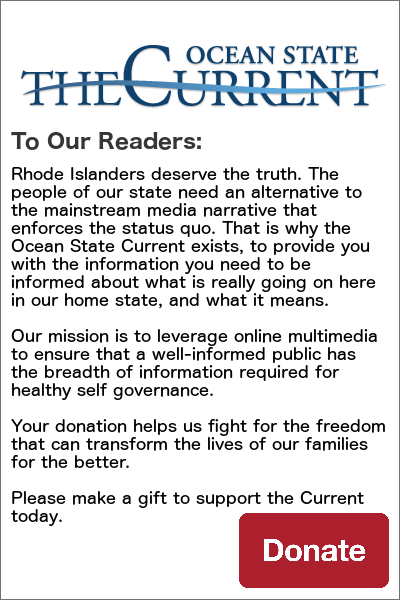The Providence Mayor’s Schedule and “Knowing and Willful” Violations
On Providence Rules, Johanna Harris updates readers on her pursuit of information about Mayor Jorge Elorza’s daily schedule:
On October 18, 2017, fifteen months after I filed my rejoinder and nineteen months after I made my initial public records request for the Mayor’s schedules, Assistant Attorney General Michael Field issued a decision letter.
The outcome was that the AG’s office found that, yes, the mayor had to turn over his schedules without charging excessive fees, but, no, there would be no penalty associated with its prior actions.
Harris is doing dogged work, and we need more people willing to do it in every city and town. This episode illustrates one way in which it can be frustrating, though, because the cards are always stacked. This, for example, has a familiar feel:
Then came the shocker. “Despite our initial agreement with the City’s initial approach, we simply cannot agree that the City’s overall estimate of 330 hours (over 8 full weeks) represents a reasonable estimated search and retrieval.” The City, Field concluded, had violated the public records law. It became clear that Field’s initial references to “reasonable” and “conservative” were inserted to bolster his conclusion that the violation was not knowing and willful.
That means that, while the city must change its practices, there will be no penalty for stonewalling. Under the state’s Access to Public Records Act (APRA), either a “knowing and willful” or even “reckless” violation creates the possibility of fines plus “reasonable attorney fees and costs to the prevailing plaintiff.” In other words, a private citizen who takes the time to jump through all of these hoops could at least receive some compensation for the time that she spends doing so.
Whether a local town council or the Ethics Commission or the attorney general’s office, agencies adjudicating complaints against other government agencies may like “knowing and willful” as a convenient dodge of accountability. It seems expedient and even fair that public officials shouldn’t face penalties for these sorts of infractions. In Harris’s case, the problem appears to have been rectified, so why impose penalties?
[box type=”note” style=”rounded”]To Our Readers: We need your support to challenge the progressive mainstream media narrative. Your donation helps us deliver the truth to Rhode Islanders. Please give now.[/box]
The danger is that the rulings create incentives. If “knowing and willful” is essentially a first-violation-free coupon, then public officials are better off not knowing what the rules are. In the case of the complaint that I filed with the Ethics Commission against Tiverton Town Council Vice President John Edwards, V, the council member went to the town solicitor for advice rather than seek an advisory opinion from the commission. If he gets away without a fine, then the incentive will be for officials to hire lawyers to give them the opinions that they want as a first line of insurance if they get caught violating some law.
But the key point is that government officials should know the law. That’s especially true in the circumstances of Harris’s complaint, which involved an employee charged with determining what has to be public information. In other words, knowing is the job even if it requires a call over to the AG’s office before responding to a request, rather than laying out obstacles.


